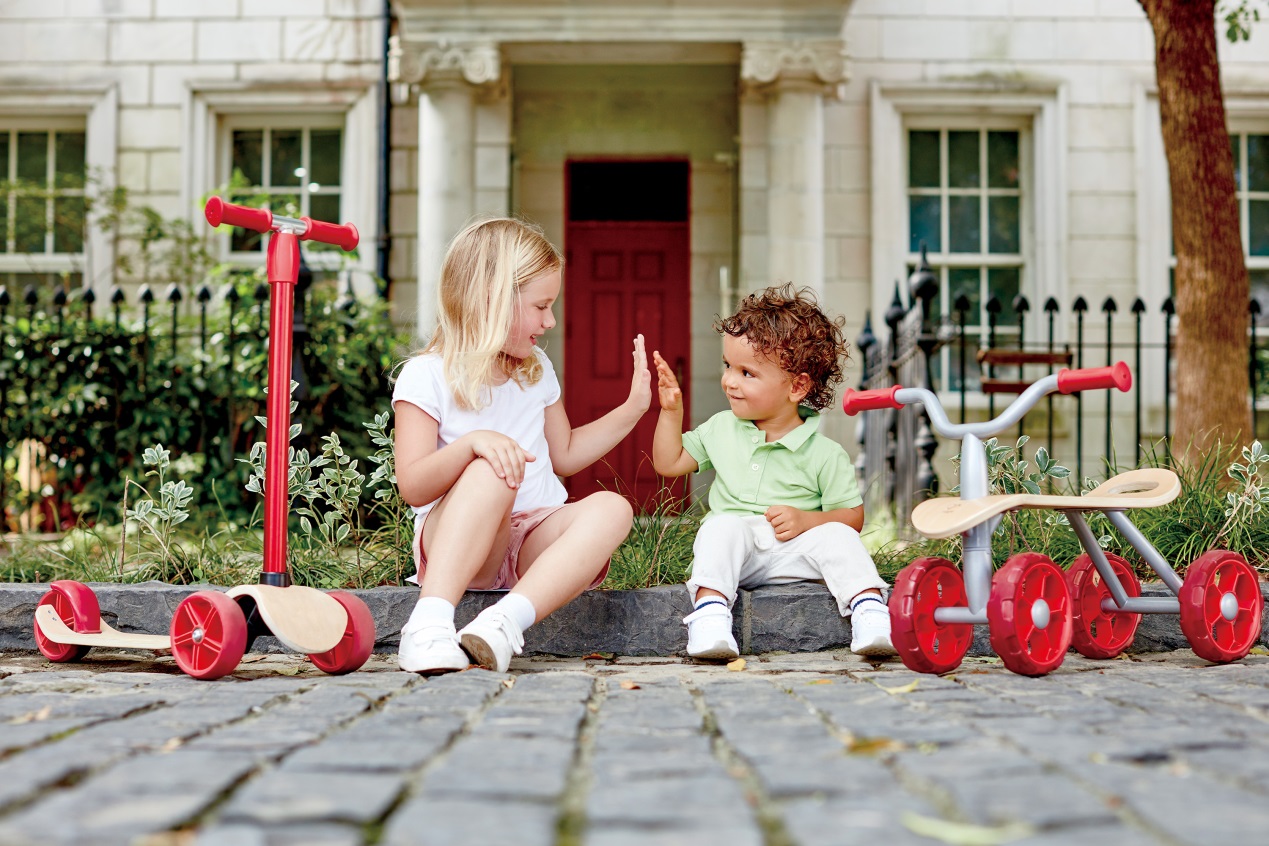Toddler years are a time of rapid child development and learning. Guiding our little ones through this phase of life can be both exciting and challenging as parents. Here is a look at some toddler facts to help you on your parenting journey.
Physical development
An average toddler takes around 176 steps each minute, that’s a lot of running behind for the parents. That is one of the reasons age 2 is nicknamed the "Terrible Twos", because a toddler will be found exploring every corner of the house, improving motor skills and making a huge mess along the way. Creating safe play spaces that allow this exploration is, therefore, very important. You don’t want to interrupt this innate urge to explore. It is this curiosity that is the driver to early childhood learning.
Most toddlers are neither left-handed or right-handed. They are ambidextrous - meaning they can use both hands. Preference for one hand over the other appears around the age of 3.
Toddler years go hand in hand with rapid motor skills development especially fine motor skills. Fine motor skills require the use of the small muscles of the fingers, wrists, and hands. Everyday activities like buttoning on a shirt, tieing a shoelace, writing and drawing all need advanced fine motor skills. The child begins to show some of these fine motor skills in the toddlers years itself and finding age-appropriate toys that provide a challenge to the child, improve hand-eye coordination and enhance these fine motor skills goes a long way in setting a strong base. Simple toys like the Hape Creative Peg Puzzles are great for practicing fine motor skills. The quicker your child becomes adept at using these smaller muscles of the hand the easier the transition to pre-school years.

A toddler’s ears can pick up higher frequency sounds better than the average adult, which means most toddlers have a sharp hearing sense.
Cognitive development
Toddlers pick up new words at the speed of light! By 18 months of age, a toddler’s spoken vocabulary explodes, adding new words at about one every two hours. Therefore reading books to little children and having conversations with them is very important for language development. There is no other more receptive time period in growth and development than now.

Toddlers learn through all their senses. By 2 years of age, a child has more than 100 trillion new brain synapses or connections. However, more than 50% of these acquired synapses disappear by adulthood. Providing rich learning experiences like exposure to nature and outdoor play helps boost brain power and improves a child’s curiosity. At home, exposure to sensory toys is one way to provide such rich experiences.
Playing musical instruments and singing songs increases visual, motor skills, attention span, language and mathematical skills in children. Some research has shown that music activates the same areas of the brain that subjects use while solving spatial-temporal reasoning problems. This suggests that teaching music can result in optimization of spatial-temporal reasoning and mathematical performances. Toys like The Pound and Tap bench or the Shape Sorter Xylophone are designed specifically for little musicians, bringing an initiation to music from an early age.
Emotional & Social Development
Are you wondering what happened to your little angel baby as soon as they hit age 2? Well, it’s a time period of self-expression and tantrums are part of it. Tantrums are a result of toddlers trying to express themselves but emotions getting in the way. Impulse control is still immature at this stage and little children need a lot of hand-holding in order to understand their emotions better. Hence, while a tantrum may look like a personal attack on the parent, understand that this is just your child trying to communicate with you. He needs to assert for himself and you need to help communicate his frustrated feelings in a better way.
Toddlers learn social skills by observing adult behavior. Around 2 years of age, you will find that pretend play is of great interest to your child. Mimicking adults is the child's way of learning about the world, and picking up key life skills. Consider a child's play as a powerful learning tool. It is through play that a child learns how to socialize, use imagination, and develop language and motor skills.
Regardless of all the above-stated toddler facts, it is very important to remember that each child will develop at his own pace. No two children are the same and we must learn to appreciate these differences.
Did you know about these toddler facts? Which toddler fact surprised you the most?



